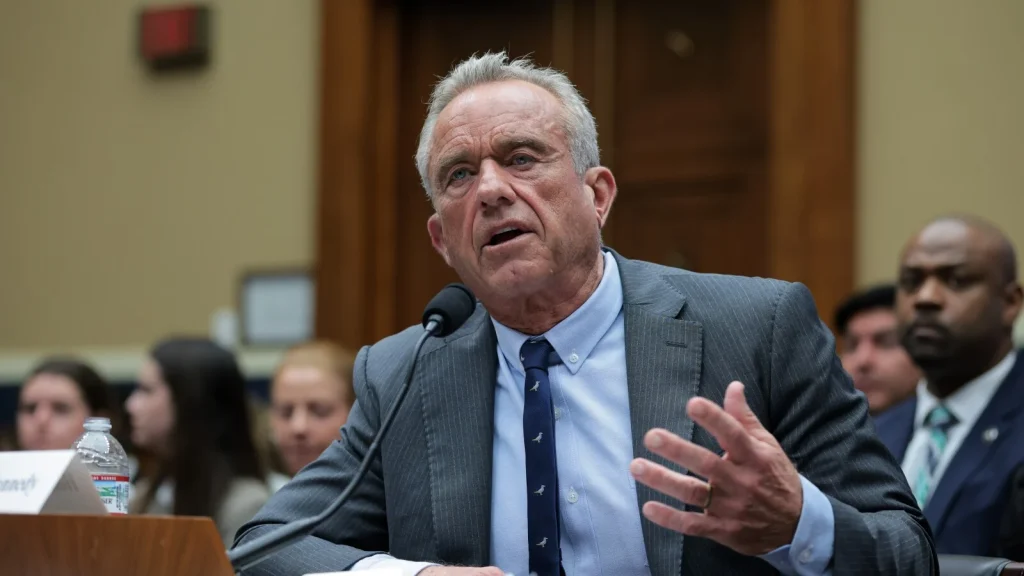Robert F. Kennedy Jr. Launches “Make America Healthy Again” Initiative Promoting Wearable Tech and Smart Health Devices Amid Prime Day Deals
Robert F. Kennedy Jr. has never been shy about tackling major health issues head-on, but his latest initiative is taking a modern, tech-driven twist. As part of his “Make America Healthy Again” campaign, Kennedy is encouraging Americans to embrace wearable technology — the kind that helps people monitor heart rates, sleep quality, and physical activity in real time. His goal isn’t about selling gadgets, but about getting people to take charge of their own well-being, using tools that merge medical insight with everyday convenience.
Kennedy, who has long advocated for better health awareness and personal responsibility, believes technology can be a key ally in that mission. “The power to understand your own health shouldn’t belong only to doctors or labs,” he recently said at an event. “It should be in the hands of the people.” He’s not wrong — wearables like smartwatches, fitness bands, and health trackers have transformed the way millions monitor their bodies. Whether it’s an Apple Watch notifying someone of an irregular heartbeat, or a Fitbit encouraging daily movement, these tools are bridging the gap between science and lifestyle.

This summer, Kennedy’s campaign partnered with several wellness brands to spotlight Prime Day deals on top-rated wearables. The timing wasn’t random — the aim was to make these health devices more affordable for everyday Americans. With inflation still affecting medical costs and wellness services, the idea of owning a personal, real-time health assistant on your wrist feels like the kind of practical innovation people are ready for.
For Kennedy, the initiative fits neatly into his broader philosophy: prevention over reaction. His “Make America Healthy Again” plan doesn’t just focus on diet or exercise — it focuses on awareness. By using data collected from wearables, people can spot patterns that might signal trouble early. A sudden dip in sleep quality, abnormal heart rates, or even prolonged stress levels can be detected before they develop into bigger health issues. “When you can see your health trends every day,” Kennedy said, “you make better choices every day.”
Critics may argue that wearables aren’t a solution for everyone — privacy concerns and data-sharing risks are still part of the conversation — but Kennedy’s supporters point out that empowering individuals with health data is still a huge step forward. It creates a culture of accountability, where wellness becomes proactive instead of reactive. And in a country struggling with obesity, diabetes, and stress-related illnesses, that shift might be exactly what’s needed.
Kennedy’s campaign also highlights how technology doesn’t need to be intimidating or expensive. With Prime Day discounts, even high-end devices from Garmin, Apple, and Samsung have become more accessible. His message blends practicality with optimism — reminding Americans that staying informed about their health doesn’t have to cost a fortune.
The push has already sparked conversations online. Health influencers and tech enthusiasts alike are praising the initiative for bridging politics, technology, and public well-being in a way that feels inclusive. It’s not about government mandates or insurance programs — it’s about individuals reclaiming control through everyday tech.
As Kennedy’s movement gains momentum, the idea of “hacking your health” has become a rallying cry for wellness in the digital age. Whether you’re an athlete tracking recovery or someone trying to sleep better, Kennedy’s message is the same: knowledge is health.
In a world where technology is often blamed for disconnecting people, this campaign reminds us that it can also connect us — not just to others, but to ourselves. And that’s perhaps the most powerful kind of progress there is.



